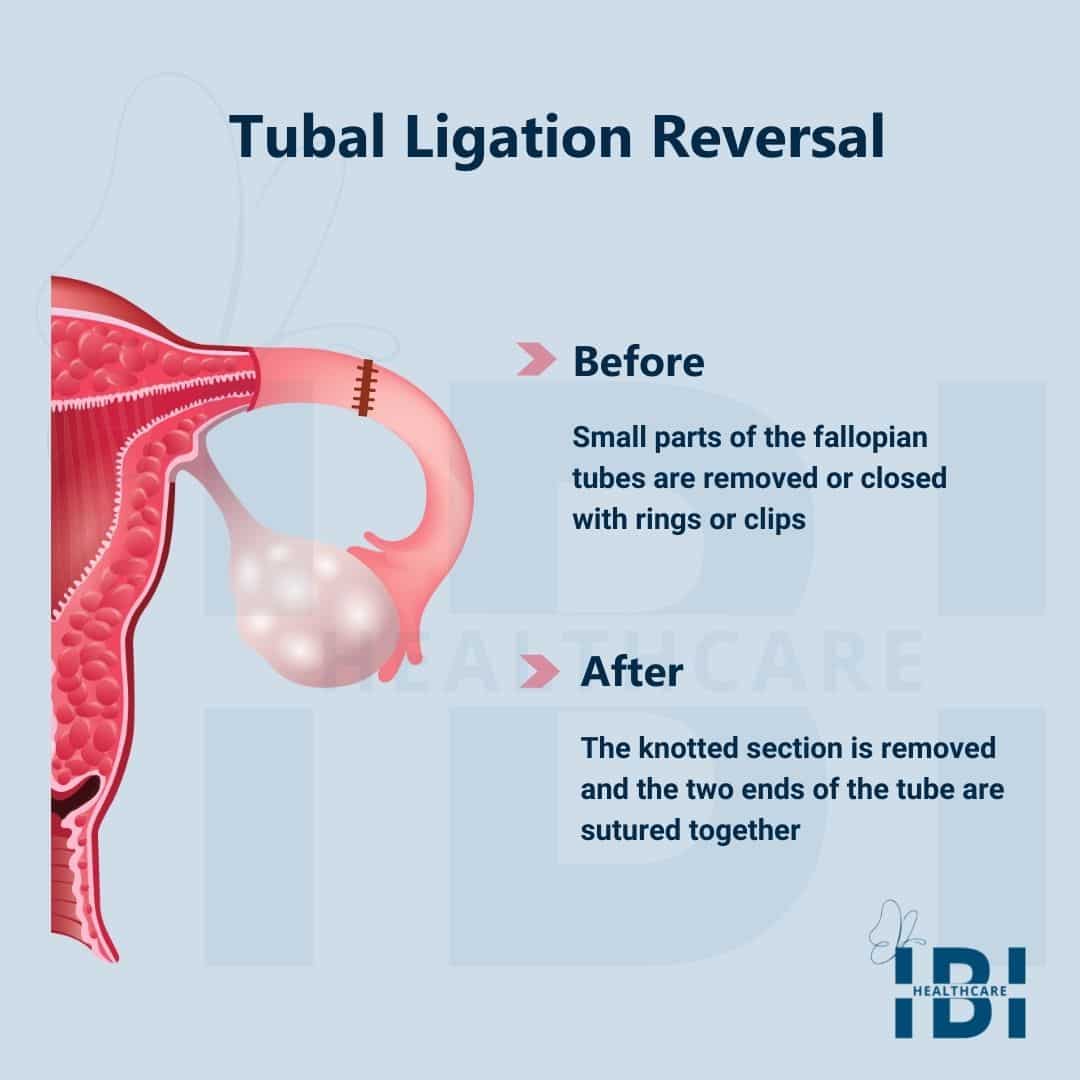What is a Tubal Ligation Reversal?
Contrarily, for tubal ligation, the surgeons perform the procedure to block the fallopian tubes. Prevent pregnancy using one of several techniques. Moreover, many women undergo tubal ligations thinking they have no desire to get pregnant again in the future. But what if her circumstances change and she changes her mind? Whereas, a woman may need a reversal procedure.
Furthermore, if a woman who has previously had her tubes tied decides that she would like to become pregnant again. Indeed she would need a reversal procedure. However, this surgery would free the previously blocked portions of the fallopian tubes reconnecting the two sections back together. Even so, if successful, it may make it possible for the egg to move. Through the fallopian tube unobstructed and allows sperm to reach it, resulting in fertilization.
Who is a Good Candidate for the Procedure?
Women who are of childbearing age, do not have current medical conditions. That would prevent a normal pregnancy, whose partner has a normal sperm analysis. On the other hand, those whose fallopian tubes are in good health. As well as of adequate length would be good candidates for reversal procedures.
How does Tubal Reversal Surgery Work?

Subsequently, surgeons perform reversal surgery under general anesthesia (with the patient asleep). Following, the procedure takes between 2 and 3 hours to complete.
Often, the surgeon will use laparoscopy to explore the current condition of the fallopian tubes. Alongside the feasibility of successfully re-connecting the tubes.
Typically, surgeons do it through a tiny incision in the navel. However, if everything looks good, the surgeon will make a small bikini-cut incision just above the pubic hairline. Consequently, the surgeon will reconnect the fallopian tubes laparoscopically using very fine sutures.
In truth, patients normally do not require a hospital stay. With this intention, the surgeon will discharge the patient with aftercare instructions and pain medications for recovery at home. Given that, patients can return to their regular activities after 2 weeks.
Can You Reverse All Tubal Ligations?
Unfortunately, you cannot reverse all tubal ligations. In some cases, the technique used to block the fallopian tubes damages them to the point. Eventually, a reversal is not possible. Surgeons can most likely perform reversals. In cases where the initial surgery used tubal clips or rings to close off the fallopian tube. Or if they removed only a small portion of the fallopian tube. Choosing an expert tubal ligation reversal doctor will be instrumental in achieving success with the procedure.
What is the Success Rate of Tubal Ligation Reversal?
Typically, the procedure success rate is between 45-85%. However, it depends on many different factors, some of these include:
- The expertise of the microsurgeon.
- The overall health and age of the patient.
- The technique used to perform the tubal ligation.
- The condition and health of the fallopian tube sections.
- If there is an adequate length of the fallopian tube to work with – about 3”.
How much does Tubal Ligation Reversal Surgery Cost?
Various factors contribute to the overall procedure cost. For instance, geographical location, and the type of ligation performed can play a role. Additionally, you may need to perform any pre-operative tests. That will determine the cost of a Tubal Ligation Reversal. The costs can range from $5,000 – $21,000. But the average reversal tubal ligation cost in the United States is approximately $8,685. Therefore, take advantage of our limited-time special prices.
Health insurance plans usually do not cover the costs of reversing tubal ligation. However, IBI Healthcare Institute offers patient financing plans. During the initial consultation, we will discuss pricing and specifics unique to your situation. Interested in learning more about tubal ligation reversal, inquire further information. Either call us or you can also conveniently book an appointment online.
What are the Risks of the Procedure?
Any surgical procedure carries associated risks. The risks of tubal ligation reversal surgery, although rare, may include:
- Bleeding.
- Infection.
- Damage to nearby organs.
- Adverse side effects from anesthesia.
- Increased risk of ectopic pregnancy – 5 in 100 pregnancies.
How long does it take to Get Pregnant after the Procedure?
The goal of reversal surgery is to become pregnant and have a child. Surgeons normally run tests on both partners before scheduling a tubal ligation reversal to rule out any potential fertility issues. The tests will reveal the health of both the sperm and the egg, and determine if conceiving naturally is feasible. Among couples who had no other general fertility problems. 75-80% of women who have had successful tubal ligation reversals became pregnant within a year after the procedure.
Where can I have a Tubal Ligation Reversal Procedure?
Many women who previously had their “tubes tied. May have life events causing them to change their minds about adding to their family. If you are considering reversing your tubal ligation to become pregnant, contact IBI Healthcare Institute.
Additionally, we offer tubal ligation reversal and several other women’s reproductive health services. Particularly, in three convenient locations – Longaville, Alpharetta, and Tampa,






